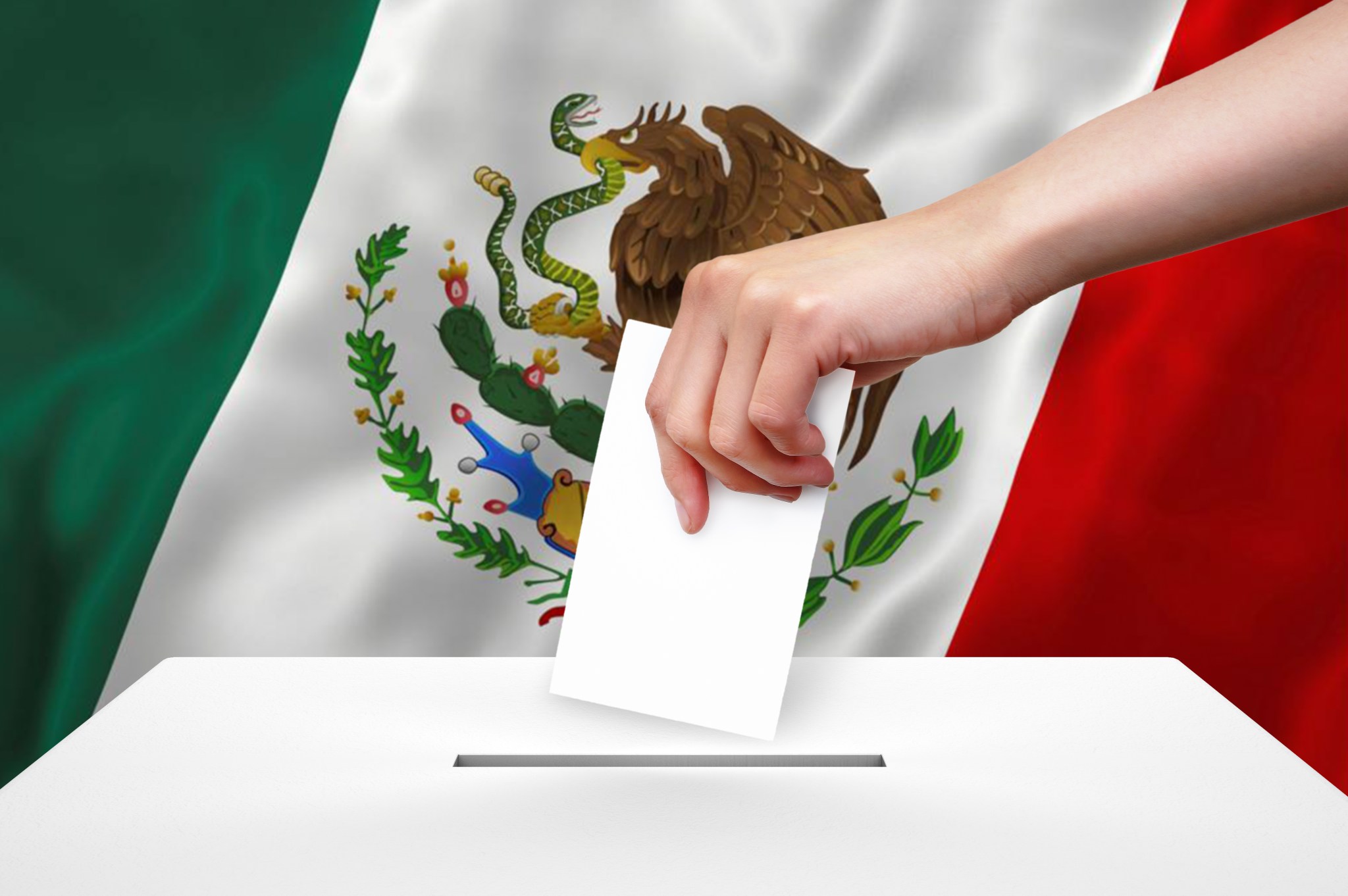Critical Juncture: Mexico’s 2018 General Elections

2018 is a banner year for Mexican voters. On July 1, more than 3,400 positions for federal, state and local offices will be contested.
Elections include the national presidency, governors in nine states (Chiapas, Guanajuato, Jalisco, Morelos, Puebla, Tabasco, Veracruz, Yucatan, and Mexico City), 1,596 municipal presidents (mayors), 500 national Deputies, 128 Senators and 972 local legislative seats across 30 of Mexico’s 32 states. The vote will be complex and challenging. Elections of this magnitude will test the National Electoral Institute (Instituto Nacional Electoral —INE) and electoral regulations enacted by the 2014 Constitutional Reforms.
For the first time, Mexicans living abroad will be able to vote for congressional representatives, and governors, as well as for president. Independent candidacies are permitted, and presidential hopefuls are registering as independents in record numbers. Parties from opposite political spectrums—National Action Party (PAN), Revolutionary Democratic Party (PRD) and Citizen Movement, among others—have created coalitions, providing stronger blender choices for voters. A viable fourth option, the relatively new National Regeneration Movement (MORENA), is a serious contender in various races. Women and youth represent 52 and 30 percent of voters respectively, providing an opportunity to steer the political discourse and serve as agents of change.
The year will be dominated by four issues—security, corruption, global trade and the elections themselves. These are not mutually exclusive and speak to the country’s institutional challenges. In 2016, Mexico was thought to have transitioned to a new penal code in all states—an accusatory system based on a presumption of innocence and a major triumph for the rule of law. Despite this, 2017 was the most violent year in decades with 29,228 homicides, a spike of 27 percent in the murder rate from the previous year. From December 2017 to date, 12 politicians, six of which were aspiring to run in July 2018, were murdered. Last year, Mexico ranked as the most violent country in the world for journalists, outside of war zones. In response, the National Congress approved a controversial internal security law allowing the military to defend citizen security if federal and local police are unable to do so. The Supreme Court is reviewing.

Corruption is endemic and represents a major obstacle to effective governance, the rule of law and citizen confidence in their democracy. According to the 2017 Latinbarometro survey, corruption ranks high among Mexicans as one of the top concerns facing the nation. With support for democracy at record lows, 38 percent, Mexico’s next president must ensure tackling corruption is a top priority. Global trade, particularly the renegotiation of the North American Free Trade Agreement (NAFTA), also looms. A component is the Anti-Corruption Chapter focusing on the integrity of governments and officials; corporate responsibility; and anti-corruption mechanisms among states.
Continuity of a package of 95 reforms approved in 2012 in education and energy implemented by current President Enrique Peña Nieto also remain uncertain. Lastly, competition and rhetoric between political parties and public disinformation campaigns (i.e. “fake news”) threaten the perceived legitimacy of election results. Voter intimidation and buying votes by political parties are a possibility. Given the scale of elections, electoral violence related to fraud, corruption and other forms of foul play is worrisome.
At the national level, presidential pre-candidates—Jose Antonio Meade of the ruling Revolutionary Institutional Party (PRI), Manuel Lopez Obrador of MORENA, and Ricardo Anaya from the PAN/PRD alliance have an opportunity to steer Mexico toward a prosperous future. Strengthening the National Anti-Corruption system, rule of law, and ensuring the integrity of the INE is a step in the right direction. Every Sexenio (the presidential term lasting six years) brings political and economic ambiguity. 2018 is a defining year for Mexico. The campaign season officially kicks off next month.
Top